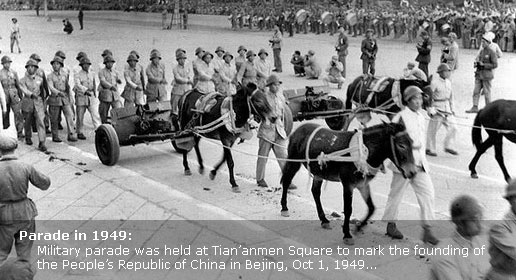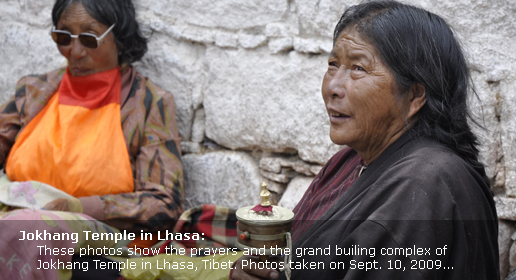Ethnic Unity
New China's ethnic groups strong and growing
By Zhao Chunzhe (chinadaily.com.cn)
Updated: 2009-09-21 14:39
Beijing: As the nation approaches the 60th anniversary of the founding of New China, the fast development of Chinese ethnic groups is being reviewed and the importance of the unity of nationalities is being stressed. One man taking on the task is Yang Jing, director of the Ethnic Affairs Commission of China (EACC).
Yang has been in charge of the EACC since March 2008 and has spent most of his time inspecting ethnic inhabited regions of China.
“The ethnic minorities of China are among the most benefited groups since the founding of new China,” Yang said.
The founding of New China marked a sharp change for the better for the ethnic groups of the nation, rising from a primitive state to a civilized one and benefiting from a life of well-being.
The GDP of all ethnic regions reached 3 trillion yuan in 2008. The economic growth rate of ethnic regions has risen above the national average level since the founding of New China, especially with the opening up policy of China in the late 1970s.
Ethnic peoples income in urban and rural areas increased respectively by 30.8 times and 19.2 times.
In terms of education, 14 ethnic groups spent more years at school than the national average level.
The average life span for ethnic groups increased to 70 years of age compared with below 40 years of age in the past.
“Most ethnic regions of China are rich in natural resources. They have the potential to develop faster than the eastern areas of China if there is a stable environment,” Yang explained.
Yang identifies with China’s ethnic people, being an ethnic minority himself. He hails from the Inner Mongolia autonomous region and graduated from Inner Mongolia University, majoring in Mandarin.
He loves to read books and believes languages carry cultures. “Ethnic people knowing both their own language and Mandarin have more advantages in competition, thus reaching to a wider field to fulfill their goals,” Yang said.
Yang believes whether it’s a nation or a person, being narrow-minded or refusing other cultures will lead to an “out” situation. “The national cultures will shrink and die in the end. The communication between different cultures could enhance the ethnic cultures,” he explained.
Communication can even come in the form of the arts. “Zhang Yimou, a world famous Han nationality director, successfully shooting a Zhuang ethnic group drama Sister Liu, is a good example,” Yang said.
Having spent a lot of time meeting people from various ethnic groups, Yang believes better communication will provide a more sensible basis to make government policies.
But when he does meet with people as an ethnic official, Yang always forgets his ethnic status. “Ethnic officials should ignore the ethnic status, for one doesn’t work for himself or a certain group of people, but the nation as a whole,” he said.







